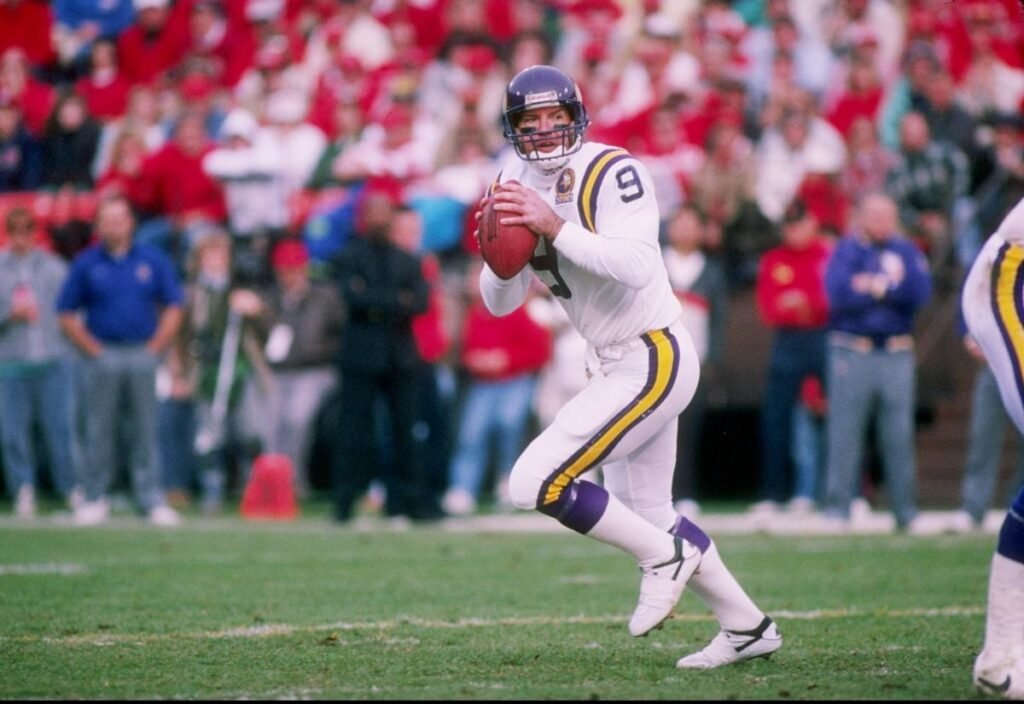Tommy Kramer said Brett Favre’s announcement prompted him to reveal his own diagnosis. (Otto Gruehle/AllSport)
Former Minnesota Vikings quarterback Tommy Kramer announced Wednesday that he was diagnosed with dementia more than a year ago.
Kramer, 69, a 1986 Pro Bowl selection, said he decided to go public with his diagnosis after Brett Favre revealed he had Parkinson’s disease during a congressional hearing on welfare fraud. Doctors reportedly told Kramer he had two to 10 years to live, but tests a year later showed the dementia had not progressed.
“Please don’t feel sorry for me. I’ve had a great life and I wouldn’t change a thing,” Kramer wrote. “No one wants to win more than I do and I’ve never given up, and that’s exactly how I intend to approach this fight.”
Kramer said he was grateful for what the NFL gave him and its efforts to protect the health of today’s players, but he also criticized the tough financial situation faced by many former players battling illnesses like his.
Kramer, a Texas high school football legend and College Football Hall of Famer at Rice University, was selected 27th overall by the Vikings in the 1977 NFL Draft as the potential successor to Fran Tarkenton. He was a starter for eight seasons in Minnesota and led the NFL in passer rating in 1986, earning him Comeback Player of the Year honors.
Kramer left the Vikings after being replaced by Wade Wilson and retired after spending the 1990 season with the New Orleans Saints.
Tommy Kramer’s full dementia diagnosis
Following Brett Favre’s announcement yesterday, I feel it is best to inform everyone that exactly one year ago I was diagnosed with dementia at the NFL’s Cleveland Clinic.
My doctor says it could take anywhere from 2 to 10 years, but I just had my 1 year check up and the symptoms aren’t progressing and I’ve been sober for almost a year now so I think it will definitely help.
No pity please. I’ve had a great life and I wouldn’t change a thing. No one wants to win more than I do and I’ve never given up. That’s exactly how I’m going to approach this fight.
Football is a life we choose, and sometimes things like this happen. I am grateful to the NFL for giving me this opportunity and I am glad they are working to protect the players they have today. I am OK financially, but I know some of the players I played with need all the help they can get. Unfortunately, while the NFL tries to help with my medical and therapy expenses, my personal insurance does not cover them. I want to raise some awareness so the NFL can help other players and future players who are battling the same illness as me.
To me it’s all about the fans, and I plan to continue getting out and traveling and meeting my fans in the small town I love most whenever I can.
Thank you for all your support and always remember: we’re not here for a long time, we’re here to have a good time.

